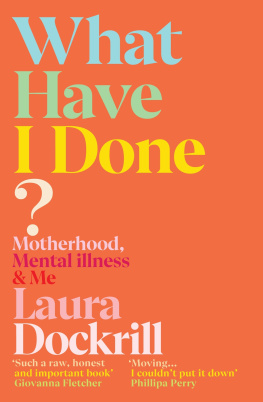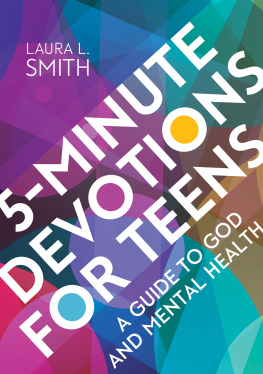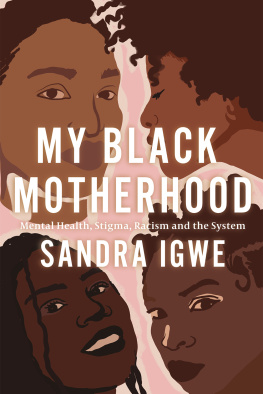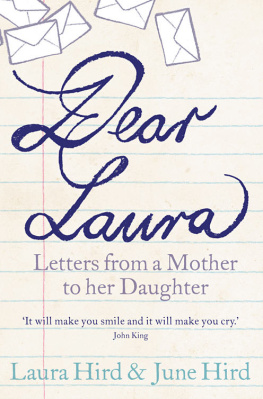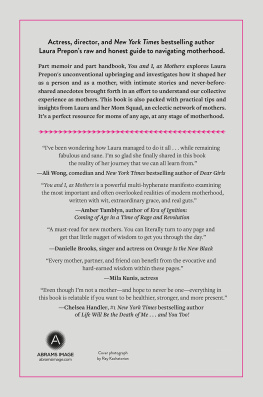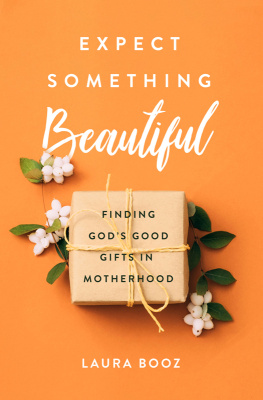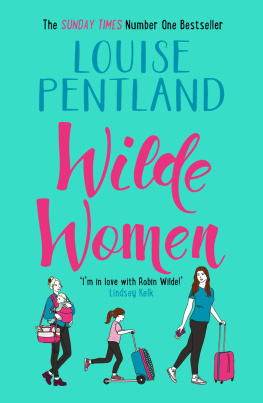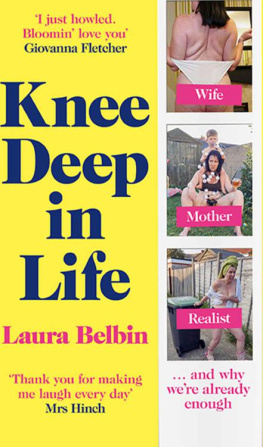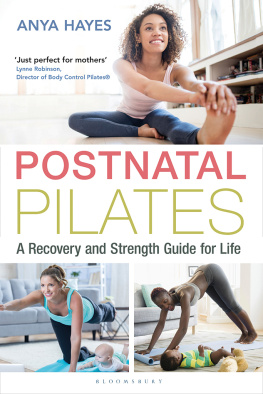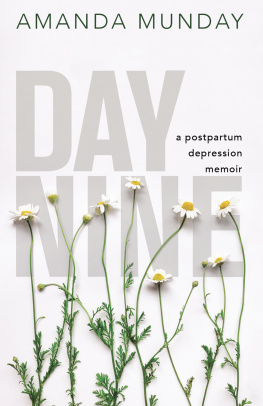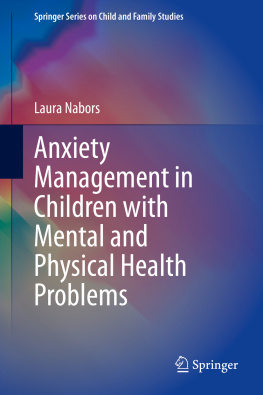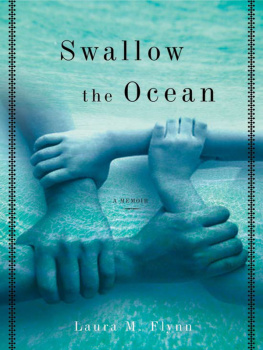A book for those of us who didnt have the fairy tale. Its important to know that even though things dont always go to plan it doesnt mean you arent a superhero or a power mum in your own right. A must-read for all of those muddling through.
Paloma Faith
Amazing. This book is proof that although Lauras mind was her undoing, it is also an incredible asset that is going to help so many people.
Clemmie Telford, @clemmie_telford
This book is a comfort to women recovering who read it and realise that all their crazy mad-ass thoughts were the illness and not themselves.
Fiona Telford, postpartum psychosis survivor
Lauras raw, honest book gets to the core of postpartum psychosis. She has emerged with a greater understanding of self, with deeper compassion for those who suffer from mental illness, and with a determination to combat stigma and ignorance by speaking out. I hope this book will give women and their families confidence that the brain and body will heal. And I hope it will encourage other women to speak out.
Dr Jessica Heron, CEO, Action on Postpartum Psychosis
This book will bring hope to many women and their partners who have struggled with their mental health during this already nerve-wracking and overwhelming time.
Becca Maberly, @amotherplace
An incredibly powerful book. Brave, brilliant and so, so important.
Jessie Ware
Raw, powerful, visceral: this book has so much to offer to anyone who reads it, whether they be a pregnant woman, new mother, partner, midwife, or someone recovering from mental illness. It is so important on so many levels to hear experiences like Lauras to widen our understanding of these issues and how they can affect us.
Isabelle Bourton, midwife
Every maternity nurse must read this book. Laura has taught me what no course could have taught me.
The Maternity Nurse
I absolutely loved this book. Its so honest, I related to the rawness of it all. There was so much I could identify with.
Helen Grimes, postpartum psychosis survivor
Unfiltered and inspiring. I felt like I was right there on the journey with Laura and I felt privileged she shared it.
Rosey Adams, @pndandme
A seminal work which will help people worldwide who identify with Lauras experience.
Karen Levy, psychotherapist
I cried, laughed and cried again. Its therapeutic to read. This book will help to raise awareness and help people understand what its like to go through this, to see light at the end of the tunnel and know you wont always feel like this.
Jessie Hunt, postpartum psychosis survivor
This book will save lives. Laura is completely honest about her experiences and shows incredible insight into her thoughts and feelings at that time. A must-read for everybody.
Mia Vaughan, @cigarettesandcalpol
An important book and I have no doubt it will have a significant impact.
Dr Chi-Chi Obuaya, psychiatrist
Laura Dockrill
WHAT HAVE I DONE?
An honest memoir about surviving postnatal mental illness

This ebook is copyright material and must not be copied, reproduced, transferred, distributed, leased, licensed or publicly performed or used in any way except as specifically permitted in writing by the publishers, as allowed under the terms and conditions under which it was purchased or as strictly permitted by applicable copyright law. Any unauthorized distribution or use of this text may be a direct infringement of the authors and publishers rights and those responsible may be liable in law accordingly.
VINTAGE
20 Vauxhall Bridge Road,
London SW1V 2SA
Vintage is part of the Penguin Random House group of companies whose addresses can be found at global.penguinrandomhouse.com.

Copyright Laura Dockrill 2020
Laura Dockrill has asserted her right to be identified as the author of this Work in accordance with the Copyright, Designs and Patents Act 1988
First published by Square Peg in 2020
penguin.co.uk/vintage
A CIP catalogue record for this book is available from the British Library
ISBN 9781473575226
For Hugo and Jet
The events described here are based on memories of my experiences. The identifying features of some people and places have been changed in order to protect the privacy. Any similarities are purely coincidental.
Authors Note
I very nearly didnt write this book.
It scares me to death. Revisiting the messy pain of what happened. Its a lot of what the FUCK was all that about? But also a lot of holding onto myself, thinking, Wow. That was close. Ive seen something I cant un-see. Trauma can make you fragile and vulnerable, and shame can stalk you in its wake. You become a sort of mental health police officer, trying to identify and assess the slightest thing that might trigger your symptoms, troubleshooting your days so as to not upset your delicate equilibrium. Writing about my postpartum psychosis is like stepping into a field full of landmines with a blindfold on.
Perhaps your first year of motherhood was what you expected, but it certainly wasnt for me. Having a baby almost ruined my life. I soon realised that I am not alone. So many women have related to some degree. Many mums feel they pushed their personalities out of their bodies along with their baby, they feel lost, and are trying to somehow put their old selves back together.
And nobody warns us.
The story of motherhood goes well beyond mine, from miscarriage, child-loss, termination for medical reasons (TFMR), adoption, surrogacy, parents unable to conceive, IVF there are many different paths to becoming a mother. I recognise I am lucky. To be able to have a child is lucky, and I want to acknowledge that I write this from the vantage point of privilege. I am not trying to play the violin here, but I want to use my position of being a middle-class, healthy, white woman with a supportive partner and family close by living in the UK where the health-care system is exceptional compared to most parts of the world and pregnancy and birth are generally safe to help bring attention to postnatal mental health. And what even makes you a mother anyway? It is not found alone inside the simple act of carrying and birthing a child, I can tell you that. It took me ages to understand that I was a mum in fact, its something Im still trying to understand.
There is a stigma surrounding postnatal mental health. There is silence. I am telling my version of events to add my voice to the wider conversation that needs to grow around womens health experiences.
To get better, I needed everything from medication, a psychiatrist, a psychotherapist, midwives, the NHS and lots of support from my family and friends. My partner Hugo says if he could share one piece of advice from our experience, it is this: speak up. Talk about what youre experiencing. A lot of the problem with any mental health illness is about finding the vocabulary to articulate what you are going through. So trust your loved ones and talk to them they know you better than anybody, they know who you are.
This book might contain triggers that could be sensitive to some readers. As I have said, landmines are everywhere! I had never experienced any kind of mental-health issue or illness up until the birth of my son so I know as well as anyone that it can happen to anybody and it does not discriminate. You are not immune from mental illness. The spectrum is vast and kaleidoscopic and we are all on it.
Next page
